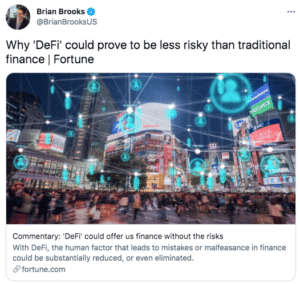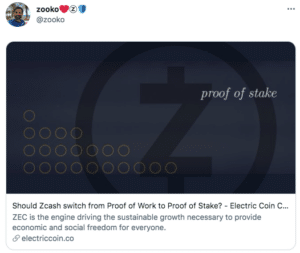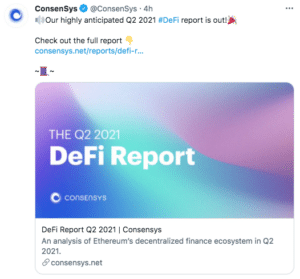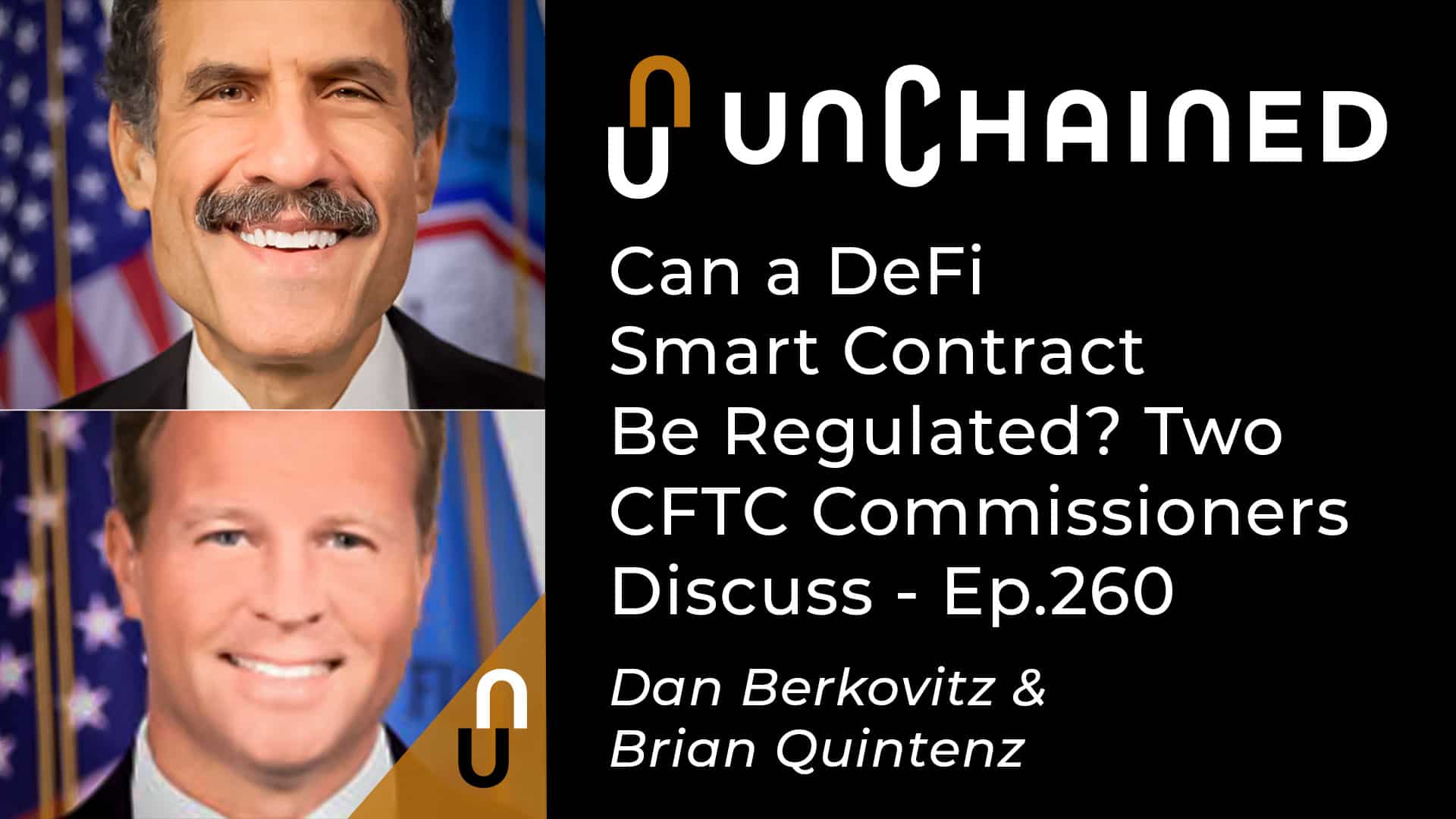August 4, 2021 / Unchained Daily / Laura Shin
Daily Bits ✍️✍️✍️
-
dYdX plans to airdrop a governance token.
-
Taxbit, a crypto tax software company, is raising $100M+ at a $1.5B valuation.
-
Select Quiznos restaurants will pilot Bitcoin payments in Denver.
-
Bitwise is adding crypto funds for both Aave and Uniswap.
-
Marathon Digital Bitcoin generation increased by 66% last month.
-
Jump Capital is set to acquire Certus One
- Digital asset manager Arca launched an actively managed “Digital Yield” fund on Monday.
- NBA Top Shot to release NFT moments at NBA Summer League games in Las Vegas later this year.
- Bitcoin SV suffered a 51% attack yesterday.
What Do You Meme?
What’s Poppin’?
Yesterday, in prepared remarks before the Aspen Security Forum, US Securities and Exchange Chairman Gary Gensler made clear his belief that the state of investor protection in the cryptocurrency is currently insufficient.
Ultimately, Gensler’s speech is asking Congress to extend the power of the SEC.
“Certain rules related to crypto assets are well-settled. The test to determine whether a crypto asset is a security is clear. There are some gaps in this space, though: We need additional Congressional authorities to prevent transactions, products, and platforms from falling between regulatory cracks. We also need more resources to protect investors in this growing and volatile sector.”
Gensler specifically cited ICOs, DeFi, and stablecoins as particularly thorny issues the SEC must handle.
On ICOs, Gensler agrees with former SEC Chairman Jay Clayton, who believes that every ICO he has seen should be considered a securities offering.
“You see, generally, folks buying these tokens are anticipating profits, and there’s a small group of entrepreneurs and technologists standing up and nurturing the projects. I believe we have a crypto market now where many tokens may be unregistered securities, without required disclosures or market oversight.”
Regarding DeFi and trading platforms, Gensler thinks that most are listing securities.
“A typical trading platform has more than 50 tokens on it. In fact, many have well in excess of 100 tokens. While each token’s legal status depends on its own facts and circumstances, the probability is quite remote that, with 50 or 100 tokens, any given platform has zero securities.”
Speaking about stablecoins, he warned that such technology could be a threat to US national security.
“Thus, the use of stablecoins on these platforms may facilitate those seeking to sidestep a host of public policy goals connected to our traditional banking and financial system: anti-money laundering, tax compliance, sanctions, and the like. This affects our national security, too.”
The SEC Chairman’s speech was not all bad for the crypto industry. Gensler expressed interest in a crypto ETF tied to bitcoin futures provided by the Chicago Mercantile Group, saying he would “look forward to the staff’s review of such filings.”
You can read the full speech here.
Recommended Reads
- Brian Brooks on why DeFi could prove less risky than traditional finance:
- Zcash creator Zooko Wilcox believes a switch to PoS from PoW “would make ZEC more valuable to more people!”
- ConsenSys dropped its Q2 2021 review:
On The Pod…
Can a DeFi Smart Contract Be Regulated? Two CFTC Commissioners Discuss
CFTC Commissioners Dan Berkovitz and Brian Quintenz discuss the difficulties of regulating crypto derivatives and DeFi. Show highlights:
- their backgrounds
- what the CFTC’s duties are regarding crypto
- how the CFTC’s jurisdiction has evolved over the years
- why Commissioner Quintenz believes SEC Commissioner Hester Peirce’s safe harbor proposal is “brilliant”
- what relationship the CFTC and SEC have when making decisions on crypto assets
- why the commissioners believe CFTC’s complaints regarding BitMEX are “well-founded”
- why formal regulation for crypto derivatives is unlikely to be produced by the CFTC
- why leveraged derivatives products are a “concern” to the CFTC
- what makes regulating DeFi platforms so difficult
- when it comes to DeFi, who is a natural entity for the CFTC to regulate, if any
- whether the CFTC would ever go after DeFi “market participants,” who the CFTC also regulates
- why smart contracts involving futures could be illegal
- how the possibility that smart contracts could be illegal squares with the view that software development is a form of free speech
- whether the CFTC could prosecute developers who write smart contracts
- whether the CFTC needs to re-write its laws in light of DeFi innovation
- why Commissioner Berkovitz thinks the DeFi “winners” will be protocols that focus on meeting regulatory requirements
- why the CFTC approved Bitcoin futures in 2017 while the SEC has not yet approved a Bitcoin ETF
- how a Bitcoin ETF could solve Bitcoin’s accounting issue, which currently gives companies no upside for adding BTC to its balance sheet
Book Update
My book, The Cryptopians: Idealism, Greed, Lies, and the Making of the First Big Cryptocurrency Craze, is now available for pre-order now.
The book, which is all about Ethereum and the 2017 ICO mania, comes out Jan. 18. Pre-order it today!
You can purchase it here: http://bit.ly/cryptopians








